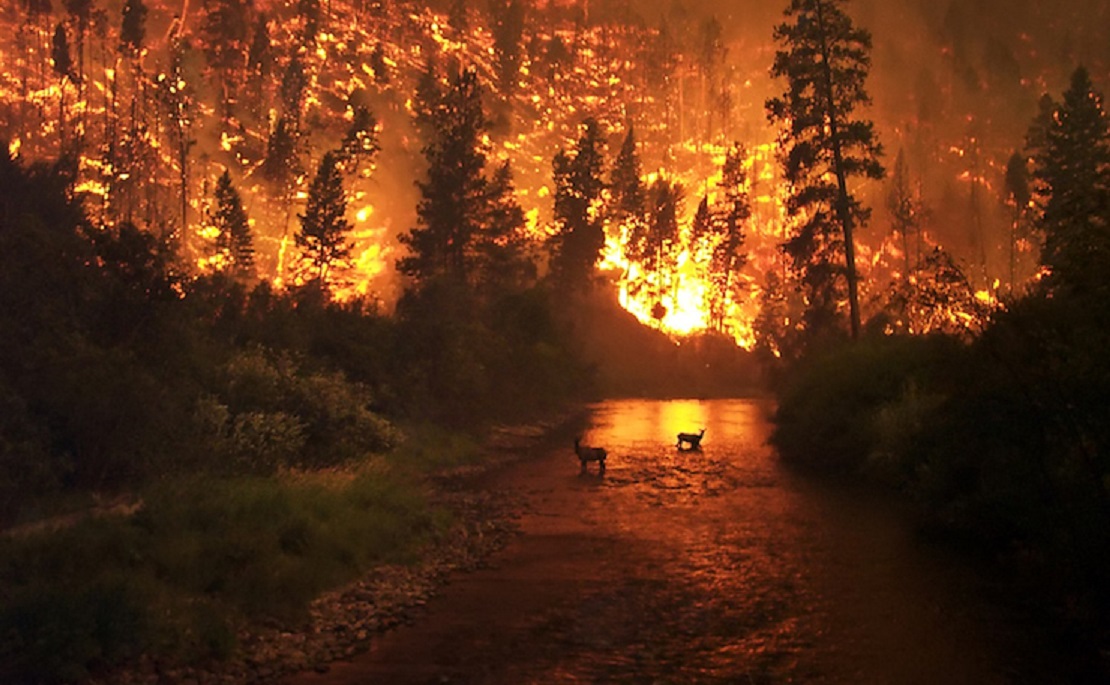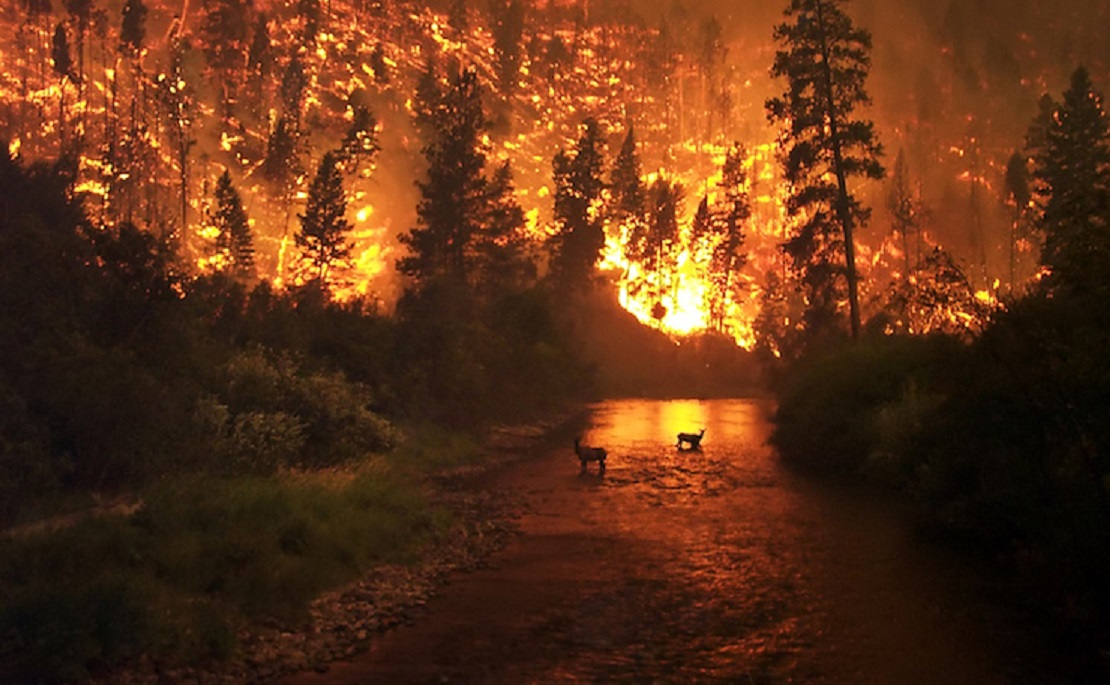Throwback Thursday: From the Vault
Image courtesy of Project LM
Wildfire is an increasingly politicized issue in the United States. With large swathes of the West literally going up in flames, D.C. politicians are squaring off over how to fund firefighting.
Facing a severe fire season, the U.S. Forest Service (USFS) is using over half of its $5 billion budget to battle the flames. Democrats want to increase the USFS budget and allow for greater flexibility to fight wildfire. Republicans agree that fire efforts needs to be improved, but argue that funding needs to be better targeted.
At the root of these debates over wildfire management is the question, “Why is the West always burning down?” Whether it be climate change, mismanagement, lack of funding, or something else entirely, the answer to this question can help determine how best to reduce the threat of disastrous wildfires. In 2002, a journalist from an eastern newspaper called PERC to ask Holly Fretwell and Linda Platts this exact question. They concluded that:
The simple explanation is that millions of acres of national forest land throughout the West are stoked with fuel, and dry as tinder from a long drought and higher than average temperatures.
But the real answer goes deeper. Fuel stoked forests can be treated with thinning, brush removal, and prescribed burns, but the institutions that govern our public lands are so dysfunctional they are unable to perform these tasks. We are saddled with onerous bureaucracies incapable of implementing innovative programs, reacting nimbly, or responding to regional differences.
Add to this dilemma the politicians who love to throw money at a good crisis if it plays well with the voters.
Yet there is an answer to this recurring cycle of deadly fires. Reducing fuel loads can change catastrophic fires that destroy watersheds, wildlife habitat, recreational opportunities, and scenic landscapes into fires that cleanse and renew the land. It is possible for federal land agencies to accomplish this goal if freed from conflicting regulations, political tampering, and public appeals.
By decentralizing agencies like the Forest Service and the Bureau of Land Management and allowing managers to respond to the unique landscapes under their care, we will see better stewardship. Change the incentives from pleasing politicians to providing good stewardship.
But don’t leave it there. Make the managers truly accountable. Let’s see how they determine high risk areas. Let’s see how they reduce the fire risk. And let’s see how the public’s money is spent. Show us the receipts.
For once, let’s not play the blame game by pointing our fingers at the Forest Service of the timber industry or the environmental groups. Increase demonstration sites and allow more local control. Give federal land managers more authority, but require more accountability. Under the current system, good land stewardship is impossible. Now that is the real reason why the West is always burning down.
Today, we revisit the question, “Why is the West always burning down?” Wildfires continue to grow, and are one of the most dynamic environmental challenges facing us. Weather, policy, personnel, and landscape all combine to make fire a formidable foe that we still struggle to control.
In response to the rapid escalation of extreme wildfire behavior and significant risk increases to responders and citizens over the past two decades, PERC is hosting a Wildfire Solutions Summit to discuss the problems and propose solutions to existing fire management structures. On July 21 and 22, a panel of experts will explore questions such as:
How does one evaluate the efficiency of wildfire management and policies?
Are wildfires really getting larger and more frequent?
Are proposed funding and policy reforms likely to improve things?
As wildfire continues to be an expensive and destructive force in the West, it is important that we consider causes and innovative solutions rather than blindly throw money at a growing problem.
If you are interested in attending the Wildfire Solutions Summit, please RSVP to rsvp@perc.org.




